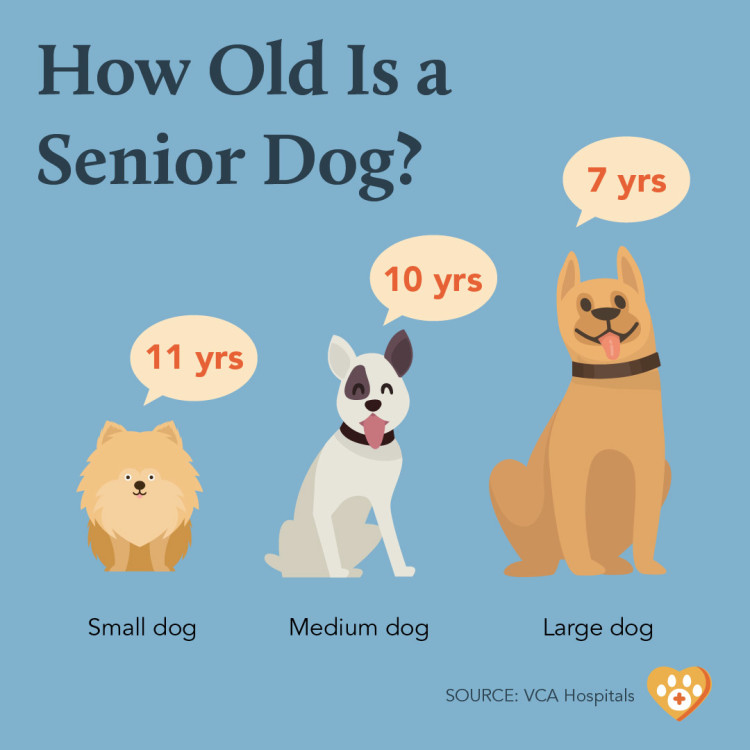As we all know, our pets are a part of the family, and we do anything we can to keep them healthy and happy. When an older dog is diagnosed with an illness or injury, the vet will recommend the best course of treatment for them. Pet insurance for older dogs is a way to take the worry out of a vet bill and have peace of mind that your pup will have the best chance of a speedy recovery.
Dogs of all ages can get injured or sick, so it’s important to invest in a pet insurance policy from the first day you get your pup. But with an older dog, common illnesses and injuries can be especially expensive and pet insurance can help to alleviate the financial burden.

When is a Pet Considered “senior”?
In general, though, a pet may be considered a senior when it reaches a certain age—usually, small dogs are considered senior citizens of the canine community when they reach 11 – 12 years of age. Their medium-sized friends become seniors at 10 years of age. Their larger-sized colleagues are seniors at 8 years of age. And, finally, their giant-breed counterparts are seniors at 7 years old. This is not set in stone, however, as some breeds of animals may start to experience health problems and show signs of aging sooner than others. If you have any concerns about your pet’s health, it is always best to consult with your veterinarian.
What Does Pet Insurance for Older Dogs Cover?
There are a number of different things that pet insurance for older dogs may cover. In most cases, policies for senior pets will include coverage for routine care, such as annual check-ups and vaccinations. They may also include coverage for more serious conditions, such as cancer or arthritis. It is important to read the specific policy details to see what is and is not covered.
How Much Does Pet Insurance for Older Dogs Cost?
Pet insurance often costs between $10 and $50 per month. Nevertheless, insuring an older dog begins at the upper end of this range and rises from there. Because of the increased risk of diseases and injuries, senior dog insurance can cost up to $546 per month.
Is Pet Insurance for Older Dogs Worth It?
This is a question that only you can answer, as it depends on your individual situation. Pet insurance for older dogs can be expensive, but it may be worth it if you have a pet that is experiencing health problems. It is important to weigh the cost of the policy against the potential cost of veterinary care if your pet were to become ill or injured.
Most pet insurance companies consider dogs to be seniors at age seven or eight. However, you may want to consider insuring your pet at an earlier age if he or she is experiencing health problems.
How to Get Insurance for Your Senior Pet

As your pet ages, their health may start to decline and they may require more care and attention. This can be costly, and pet insurance can help offset some of the costs.
However, not all pet insurance policies are created equal, and not all policies will cover older pets. It’s important to do your research and find a policy that is tailored to the needs of your senior pet.
Here are a few tips on how to get insurance for your senior pet:
1. Look for a policy that covers chronic conditions.
Many pet insurance policies do not cover chronic conditions, so it’s important to find one that does. Chronic conditions are typically those that require ongoing treatment and care, and they can be expensive to treat.
2. Look for a policy that has a lower deductible.
A high deductible can be a major obstacle if you need to make a claim for your senior pet. Look for a policy that has a lower deductible, so you won’t have to pay as much out of pocket if you need to make a claim.
3. Look for a policy that covers age-related conditions.
Many pet insurance policies do not cover age-related conditions, such as arthritis or diabetes. However, some companies do offer policies specifically for older pets.
When shopping for pet insurance, be sure to ask about the specific conditions that are covered. Also, ask about the age at which your pet will no longer be covered by the policy.
If your pet is already a senior, it’s not too late to get insurance. Many policies have a waiting period of 30 or 60 days, so be sure to plan ahead.
If your pet is aging and you’re not sure if insurance is right for you, consider talking to your veterinarian. He or she can help you evaluate your pet’s health and may be able to recommend a policy that is right for you.
Top 10 Best Pet Insurance for Older Dogs
There is no specific insurance for older dogs, but most pet insurance policies will cover dogs of any age. As your dog gets older, it may become more susceptible to certain health problems, so it’s important to read the policy’s terms and conditions carefully to make sure you’re covered for the conditions your dog is most likely to develop.
The following pet insurance companies can be considered the best for insuring older dogs:
- Petsmart
- Healthy Paws
- Trupanion
- Pets Best
- ASPCA
- Nationwide
- Hartville
- Embrace
- Petplan
- Figo
- Petfirst
Cost of Pet Insurance for Older Dogs
As dogs age, their health care needs tend to increase. This can lead to higher costs for pet insurance. The average annual cost of pet insurance for a dog over the age of 10 is $546, while the average annual cost for a dog under the age of 10 is $270.
However, not all pet insurance plans are created equal. Some plans offer more comprehensive coverage than others, so it’s important to compare policies and find the one that best meets your needs.
What Types of Pet Insurance Policies are Available for Older Pets?
There are three types of pet insurance policies: accident-only, illness-only, and comprehensive. Older pets are more likely to experience health problems, so a comprehensive policy is the best option. This policy covers both accidents and illnesses, and it usually has a higher premium than the other policies.
Some pet insurance companies also offer a wellness policy, which covers routine care such as vaccinations, check-ups, and dental care. However, wellness policies usually do not cover serious illnesses or accidents.
It is important to read the policy carefully to make sure that the coverages you need are included.
Conclusion on Pet Insurance for Older Dogs
There is no definitive answer to the question of whether or not pet insurance is worth it for older dogs. Ultimately, the decision depends on a variety of factors, including the cost of coverage, the dog’s health history, and the type of care the dog needs.